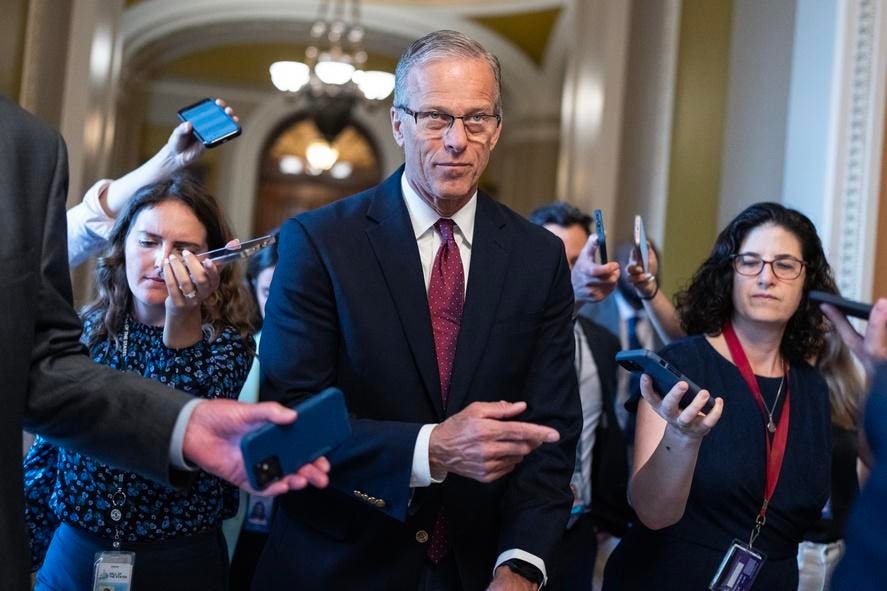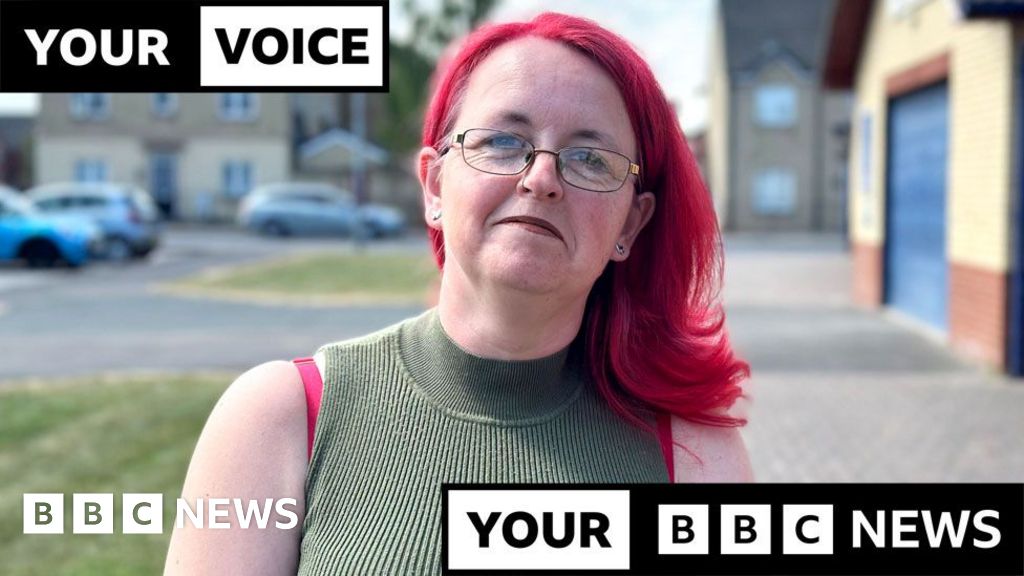Topline
Some Republican senators said they’ll vote against the House megabill passed Thursday—citing concerns about adding to the federal deficit—while others expressed the need for broad changes to the bill ahead of the July 4 target date the Senate has set for final passage of the legislation.
Senate Majority Leader John Thune, R-S.D., talks with reporters in the U.S. Capitol after the House … More passed the One Big Beautiful Bill Act on Thursday, May 22, 2025. (Tom Williams/CQ-Roll Call, Inc via Getty Images)
Key Facts
Sen. Rand Paul, R-Ky., said Thursday he wouldn’t support the legislation because it would raise the federal debt limit by $4 trillion, telling reporters “once Republicans vote for this, Republicans are going to own the deficit.”
Sen. Ron Johnson, R-Wisc., compared the House bill to “Disney World” and said “we just can’t afford it,” telling Politico on Thursday he wants Republican senators to find $6.5 trillion in additional cuts over the next decade and that President Donald Trump “can’t pressure” him to change his vote like he did some House Republicans.
Sen. Josh Hawley, R-Mo., said Trump told him in a call Wednesday he wants the megabill to end the so-called carried interest loophole that taxes a portion of investment fund managers’ earnings at a lower rate: “We got to close that and use those savings for something else, like tax cuts,” Hawley said, adding “I just want to make sure there are no Medicaid benefit cuts,” according to NBC.
Sens. Lisa Murkowksi, R-Alaska, and Susan Collins, R-Maine, have also expressed concerns about the Medicaid changes, which are estimated to result in more than $700 billion in cuts over the next 10 years and leave more than 7 million people uninsured, according to Congressional Budget Office estimates.
Senate Majority Leader John Thune, R-S.D., acknowledged the “delicate balance” House Republicans struck to cobble together the votes they needed, but told reporters Wednesday “the Senate will have its imprint” on the bill, foreshadowing changes.
Thune can afford to lose just three votes to pass the bill under Republicans’ 53-47 majority in the Senate.
Big Number
$3.8 trillion. That’s how much the bill would add to the federal deficit over the next decade, according to an estimate from the Congressional Budget Office. The CBO estimate does not take into account last-minute changes to the bill made by House Republicans overnight Wednesday.
Tangent
Federal Reserve governor Christopher Waller warned in an interview with Fox News investors want to see more “fiscal discipline” from the federal government, responding to the $3.8 trillion estimated increase to the federal deficit expected from Trump’s megabill. “This is just not sustainable,” Waller said about the rising deficit. “Everybody I’ve talked to in the financial markets, they’re staring at the bill and they thought it was going to be much more in terms of financial restraint.”
Key Background
The House passed the massive legislative package to enact Trump’s tax and immigration agenda in an early morning 215-214 vote Thursday, largely along party lines. The “One Big Beautiful Bill Act” sets the budget to fulfill Trump’s campaign promises, including eliminating taxes on tips and overtime, extending his 2017 tax cuts and funding his mass deportation operation, among other measures. To help pay for initiatives, the plan makes broad changes to Medicaid, including a new work requirement that would take effect in 2026, penalties for states that offer coverage to undocumented immigrants and changes in taxes for providers.
Further Reading
Trump’s Signature Policy Agenda Passes House After Last-Minute Revisions Including SALT Cap Increase (Forbes)
More Than 7 Million Could Lose Medicaid In House Megabill Approved Thursday: Here’s What To Know (Forbes)
House Bill And Student Loans: How Trump’s Policy Plan Could Disqualify Some And Increase Payments (Forbes)











